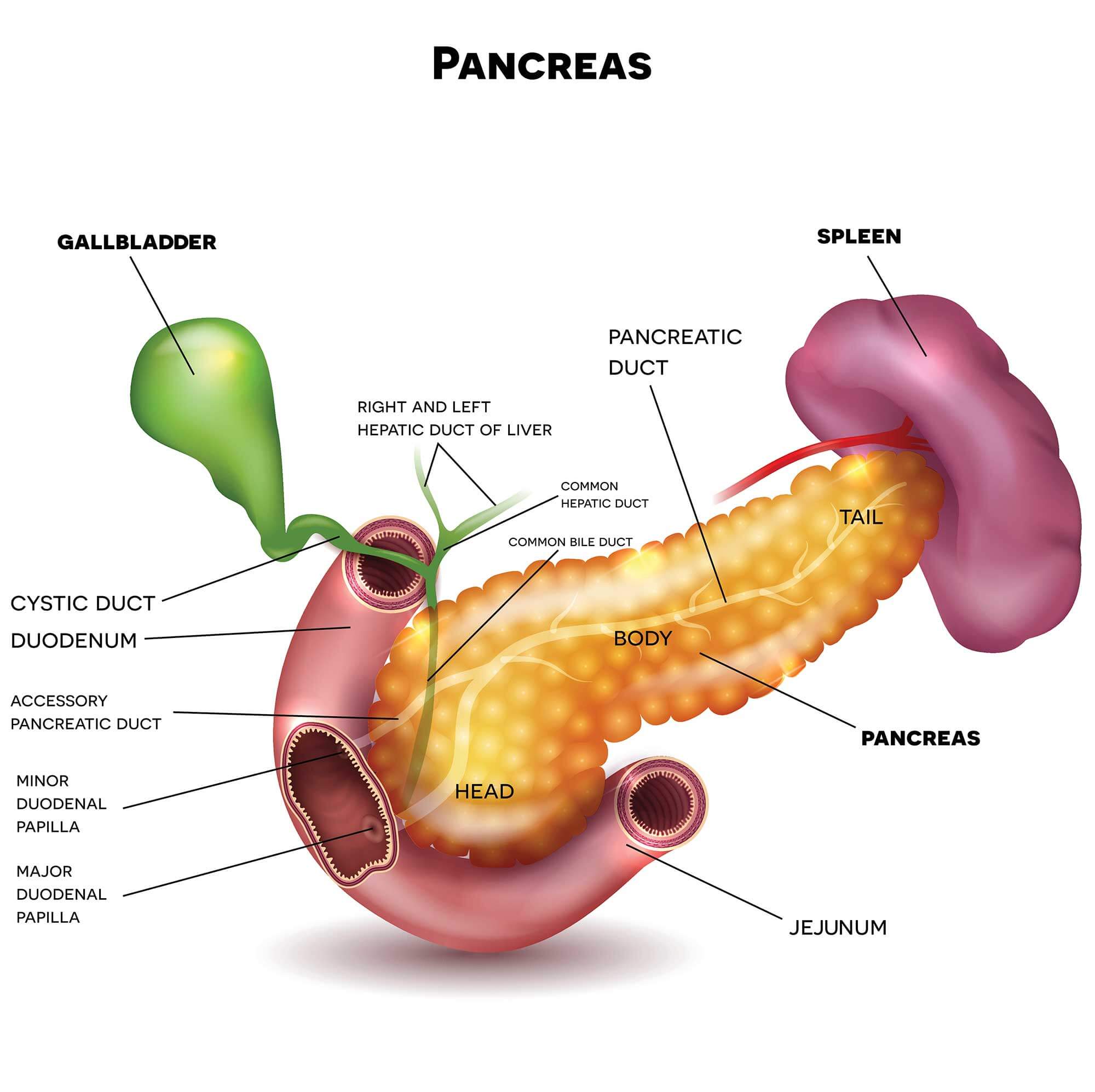Teri Brentnall MD is a board certified physician at the Digestive Health Center at UW Medical Center and SCCA co-director of the SCCA Pancreatic Cancer Surveillance Program the UWs Charles and Mary Ann Walters Endowed Chair in Medicine and Gastroenterology and a UW professor of Pathology. It helps determine how serious the cancer is and how best to treat it.
 Pancreatic Cancer Types Johns Hopkins Medicine
Pancreatic Cancer Types Johns Hopkins Medicine
Therefore most cases up to 80 percent are diagnosed at later more difficult-to-treat stages.

Scca pancreatic cancer. The earlier pancreatic cancer is diagnosed and treated the better the prognosis. Seattle Cancer Care Alliance SCCA experts offer comprehensive care for pancreatic cancer and pancreatic neuroendocrine tumors NETs including advanced treatments and new options available only through clinical studies. Pancreatic cancer develops within the pancreas an organ that rests behind the stomach in your upper abdomen.
The stage of a cancer describes how much cancer is in the body. Many patients are seen at our Pancreatic Cancer Specialty Clinic. Here is the survival rate for five years for pancreatic cancer patients treated by Seattle Cancer Care patients SCCA compared to patients who have been treated for pancreatic cancer elsewhere.
Pain can be caused by the cancer pushing on nerves and patients often have pain related to pancreatic enzyme insufficiency explained Andrew Coveler MD board-certified oncologist at Seattle Cancer Care Alliance SCCA and University of Washington UW Medical Center and a UW associate professor of medicine and oncology. Estimated new cases and deaths from pancreatic cancer in the United States in 2021. This turns the skin and the eyes yellow a condition called.
Unfortunately pancreatic cancer usually shows little or no symptoms until it has advanced and spread. This process is called staging. At the time SCCA did not offer clinical trials for pancreatic cancer but Dr.
The Seattle Cancer Care Alliances unique Gastrointestinal Cancer Prevention Program provides patients such as Ron Mitchell center with a multidisciplinary team of experts including Sara Michelson genetic counselor and Dr. I was given a combination called GTX. Read more about pancreatic cancer staging.
At this clinic all of the specialists who will be involved. Whiting put me in a small study for stage IV patients to see if chemotherapy could shrink the tumor enough to make surgery possible. Doctors also use a cancers stage when talking about survival.
After someone is diagnosed with pancreatic cancer doctors will try to figure out if it has spread and if so how far. As pancreatic cancer blocks duct that releases bile into the intestine common bile duct the ingredients of bile build up in the blood. 1 New cases.
Gemcitabine Gemzar docetaxel Taxotere and capecitabine Xeloda. During the procedure the stomach is left alone but half of the pancreas the spleen and the celiac axis which supplies blood to the liver are removed. James Park MD FACS is a board-certified surgeon at UW Medical Center and Seattle Cancer Care Alliance SCCA Director of the UW Liver Tumor Clinic Chair of the Robotic Steering Committee Clinical Director of Surgical Specialties for the WWAMI Institute of Simulation in Healthcare a core member of the SCCA Pancreas Cancer Specialty Clinic and a UW.
In the last 10 years care providers have begun to modify the procedure for pancreatic cancer. Brentnall is a clinical gastroenterologist who. Photo by Dean Forbes.
The Skagit Regional Health Cancer Care Center is a network member of the Seattle Cancer Care Alliance SCCA which is a partnership between the world-renowned Fred Hutchinson Cancer Research Center the UW Medicine and Seattle Childrens. Among other functions the pancreas is responsible for two key bodily tasks. Bill Grady medical director and gastroenterologist.
This information was collected by the National Cancer Database NCDB for patients diagnosed and treated between 2003 and 2006 and followed by a five-year period. Teri Brentnall MD is a board certified physician at the Digestive Health Center at UW Medical Center and SCCA co-director of the SCCA Pancreatic Cancer Surveillance Program the UWs Charles and Mary Ann Walters Endowed Chair in Medicine and Gastroenterology and a UW professor of Pathology. Incidence and Mortality.
Clinical Suspicion of Pancreatic CancerEvidence of Dilated Pancreatic andor Bile Duct PANC-1 Resectable Disease Treatment PANC-2 Borderline Resectable Disease No Metastases PANC-3 Locally Advanced Disease PANC-4 Unresectable Disease at Surgery PANC-6 Postoperative Adjuvant Treatment PANC-7. The incidence of carcinoma of the pancreas has markedly increased over the past several decades and ranks as the fourth leading cause of cancer death in the United States.